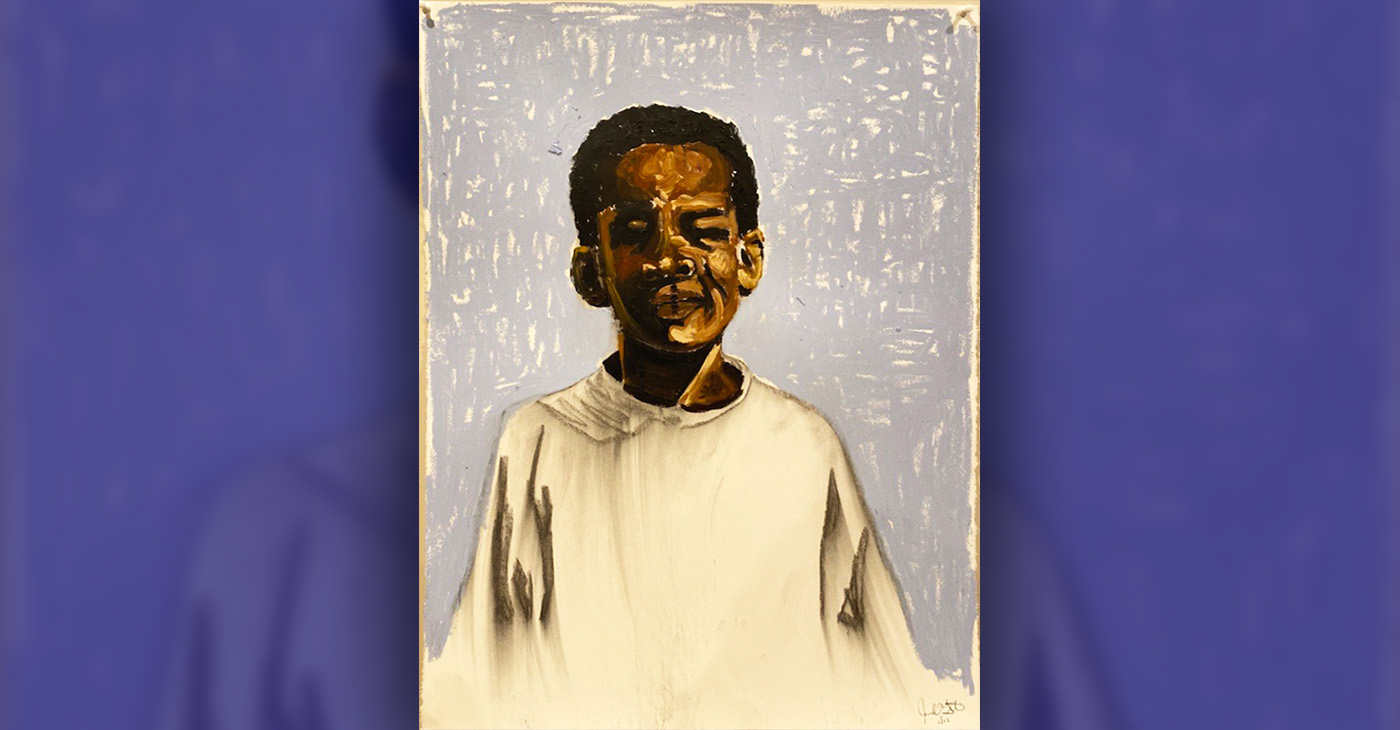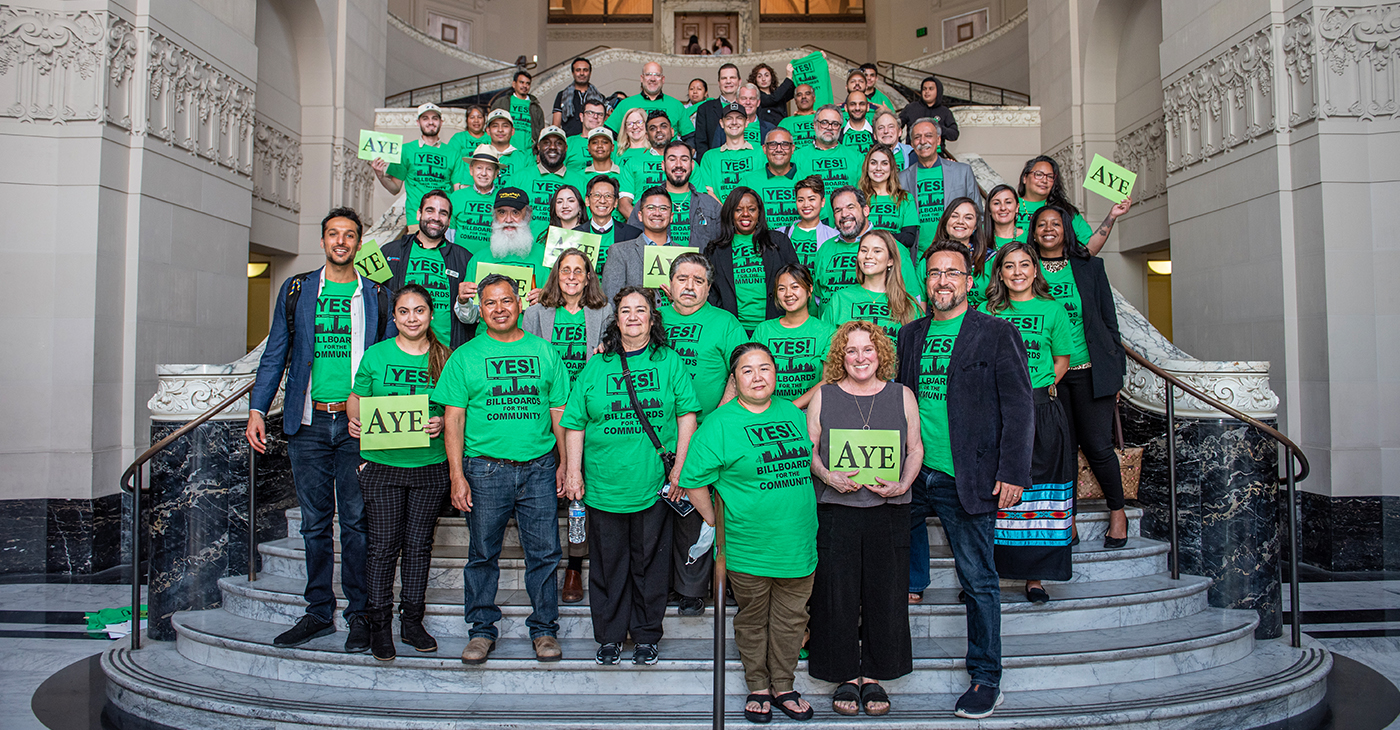Activism
MoAD, Artsy’s 2022 Art Auction Celebrates Many Voices, One Diaspora
“MoAD is so grateful to the incredible community of artists, galleries, and individuals who have enthusiastically lent their support to this year’s auction,” says Monetta White, executive director of MoAD. “Their generous response is a testament to the impact and importance of MoAD’s vital work to enhance the public’s understanding of Black art and to serve as a foundational platform for artists of African descent in the Bay Area and throughout the world.”

The Museum of the African Diaspora (MoAD), in partnership with global online art marketplace Artsy, presents its 2022 online benefit auction, “Many Voices, One Diaspora,” with works by more than 50 leading local, national, and international artists, many of whom have been featured in MoAD’s critically-acclaimed exhibitions.
The auction will run online from April 28 to May 12, 2022.
The expansive collection of both new and previously displayed works represents a vast range of voices from the African diaspora and includes signature pieces by such luminaries as Amoako Boafo, Jerrell Gibbs, Otis Quaicoe, Erica Deeman, Basil Kincaid, Lavar Munroe, Angel Otero, Ferrari Sheppard, and more.
Collectors will be able to browse works in a variety of media including photographs, paintings, prints, mixed media, and glass, ceramic, and fiber pieces.
In addition to works donated by individual artists, more than 16 galleries are supporting this important fundraiser including Mariane Ibrahim Gallery, Lehmann Maupin, and others.
“MoAD is so grateful to the incredible community of artists, galleries, and individuals who have enthusiastically lent their support to this year’s auction,” says Monetta White, executive director of MoAD. “Their generous response is a testament to the impact and importance of MoAD’s vital work to enhance the public’s understanding of Black art and to serve as a foundational platform for artists of African descent in the Bay Area and throughout the world.”
The auction provides critical funding for MoAD’s operations and programs, and essential support for the participating artists. Additionally, proceeds from the auction will benefit local and national art and social justice organizations.
Through MoAD’s partnership with Artsy, the online art marketplace is enabling MoAD to enhance the voices of these dynamic artists and their works to Artsy’s 2-million+ global art collectors and enthusiasts.
“At Artsy, we’re constantly working towards a more diverse and inclusive industry, and it’s our responsibility to use our platform to further advocate for artists who deserve our attention and are leading the way in art.
“We’re excited to be partnering with The Museum of the African Diaspora on this benefit auction and support their mission, as well as bring a global lens to these participating artists,” said Dustyn Kim, chief revenue officer at Artsy.
“I am happy to support MoAD,” says participating artist Jerrell Gibbs. “The institution aligns with my vision, celebrating Black culture, and I am pleased to have my work alongside many renowned artists in the diaspora.”
To date, participating artists include: Annan Affotey, Alanna Airitam, Alex Anderson, Simone Bailey, Ebitenyefa Baralaye, Laylah Amatullah Barrayn, Gavin Benjamin, Leonardo Benzant, Lili Bernard, Amoako Boafo, Lukaza Branfman-Verissimo, Shenequa Brooks, Nyame Brown, Adrian Burrell, Elan Cadiz, Sydney Cain, Albert Chong, Dewey Crumpler, Kenturah Davis, Erica Deeman, Cheryl Derricotte, Barbara Earl Thomas, Conrad Egyir, Rodney Ewing, Adama Delphine Fawundu, Jerrell Gibbs, Adler Guerrier, Angela Hennessy, David Huffman, Wadsworth Jarrell, Basil Kincaid, Dionne Lee, Kija Lucas, Demond Melancon, Ian Micheal, Lavar Munroe, Carmen Neely, Ed Ntiri, Ramekon O’Arwisters, Angel Otero, Woody De Othello, Dr. Fahamu Pecou, Otis Kwame Kye Quaicoe, Enrico Riley, Muzae Sesay, Ferrari Sheppard, Nyugen E. Smith, Chanell Stone, Autumn Wallace, Nate Watson, Ricky Weaver, Bri Williams, and Andrew Wilson.
For more information, visit https://www.moadsf.org/projects/moad-art-auction-2022.
About MoAD
The Museum of the African Diaspora (MoAD) is a contemporary art museum whose mission is to celebrate Black cultures, ignite challenging conversations, and inspire learning through the global lens of the African Diaspora. For more information about MoAD, visit The Museum’s website at moadsf.org.
About Artsy
Artsy is the largest global online marketplace for discovering, buying, and selling fine art by leading artists. Artsy connects 4,000+ galleries, auction houses, art fairs, and institutions from 100+ countries with more than 2 million global art collectors and art lovers across 190+ countries.
Activism
Oakland Post: Week of July 24 – 30, 2024
The printed Weekly Edition of the Oakland Post: Week of July 24 – 30, 2024

To enlarge your view of this issue, use the slider, magnifying glass icon or full page icon in the lower right corner of the browser window. ![]()
Activism
Oakland Post: Week of July 17 -23, 2024
The printed Weekly Edition of the Oakland Post: Week of July 17 -23, 2024

To enlarge your view of this issue, use the slider, magnifying glass icon or full page icon in the lower right corner of the browser window. ![]()
Activism
Community Celebrates Historic Oakland Billboard Agreements
We, the Oakland Billboard Economic Development Coalition, which includes Oakland’s six leading community health clinics, all ethnic chambers of commerce, and top community-based economic development organizations – celebrate the historic billboard agreements approved last year by the Oakland City Council. We have fought for this opportunity against the billboard monopoly, against Clear Channel, for five years. The agreements approved by Council set the bar for community benefits – nearly $70 Million over their lifetime, more than 23 times the total paid by all previous Clear Channel relocation agreements in Oakland combined.

Grand Jury Report Incorrect – Council & Community Benefit
We, the Oakland Billboard Economic Development Coalition, which includes Oakland’s six leading community health clinics, all ethnic chambers of commerce, and top community-based economic development organizations – celebrate the historic billboard agreements approved last year by the Oakland City Council. We have fought for this opportunity against the billboard monopoly, against Clear Channel, for five years. The agreements approved by Council set the bar for community benefits – nearly $70 Million over their lifetime, more than 23 times the total paid by all previous Clear Channel relocation agreements in Oakland combined.
Unfortunately, a recent flawed Grand Jury report got it wrong, so we feel compelled to correct the record:
- Regarding the claim that the decision was made hastily, the report itself belies that claim. The process was five years in the making, with two and a half years from the first City Council hearing to the final vote. Along the way, as the report describes, there were multiple Planning Commission hearings, public stakeholder outreach meetings, a Council Committee meeting, and then a vote by the full Council. Not only was this not hasty, it had far more scrutiny than any of the previous relocation agreements approved by the City with Clear Channel, all of which provide 1/23 of the benefits of the Becker/OFI agreements approved by the Council.
- More importantly, the agreements will actually bring millions to the City and community, nearly $70M to be exact, 23 times the previous Clear Channel relocation agreements combined. They certainly will not cost the city money, especially since nothing would have been on the table at all if our Coalition had not been fighting for it. Right before the decisive City Council Committee hearing, in the final weeks before the full Council vote, there was a hastily submitted last-minute “proposal” by Clear Channel that was debunked as based on non-legal and non-economically viable sites, and relying entirely on the endorsement of a consultant that boasts Clear Channel as their biggest client and whose decisions map to Clear Channel’s monopolistic interests all over the country. Some City staff believed these unrealistic numbers based on false premises, and, since they only interviewed City staff, the Grand Jury report reiterated this misinformation, but it was just part of Clear Channel’s tried and true monopolistic practices of seeking to derail agreements that actually set the new standard for billboard community benefits. Furthermore, our proposals are not mutually exclusive – if Clear Channel’s proposal was real, why had they not brought it forward previously? Why have they not brought it forward since? Because it was not a real proposal – it was nothing but smoke and mirrors, as the Clear Channel’s former Vice President stated publicly at Council.
Speaking on behalf of the community health clinics that are the primary beneficiaries of the billboard funding, La Clinica de la Raza CEO Jane Garcia, states: “In this case, the City Council did the right thing – listening to the community that fought for five years to create this opportunity that is offering the City and community more than twenty times what previous billboard relocation agreements have offered.”
Oakland Billboard Economic Development Coalition
| Native American Health Center | La Clínica de la Raza | West Oakland Health Center |
| Asian Health Services | Oakland LGBTQ Center | Roots Community Health Center |
| The Unity Council | Black Cultural Zone | Visit Oakland |
| Oakland African American Chamber of Commerce | Oakland Chinatown Chamber of Commerce | Oakland Vietnamese Chamber of Commerce |
| Oakland Latino Chamber of Commerce | Building Trades of Alameda County | (partial list) |
-

 Arts and Culture3 weeks ago
Arts and Culture3 weeks agoRooted in Tradition: The Intricate History of Black Hair Braiding
-

 Bay Area4 weeks ago
Bay Area4 weeks ago“I Will Not Be Bullied,” Says Oakland Mayor Sheng Thao
-

 Bay Area2 weeks ago
Bay Area2 weeks agoPG&E Increases Rates While Bay Area Households Are Struggling to Stay Afloat
-

 Business3 weeks ago
Business3 weeks agoGov Newsom: Raising Fast Food Minimum Wage to $20 Pays Off as Jobs Multiply in Industry
-

 Activism4 weeks ago
Activism4 weeks agoOpponents of Mayor Sheng Thao Are Calling on Her to Resign Following FBI Raid
-

 Community1 week ago
Community1 week agoHundreds Come to Jehovah’s Witnesses’ Assembly Hall for Three-Day Program of ‘Good News’ in Fremont
-

 Bay Area2 weeks ago
Bay Area2 weeks agoJuneteenth Mass Shooting Suspect Charge with Multiple Counts of Felony Assault by Alameda County DA Pamela Price
-

 Activism4 weeks ago
Activism4 weeks agoOakland Coliseum Sale to AASEG: A Model for Community Development and Inclusion

















































